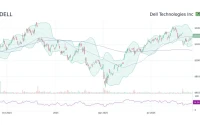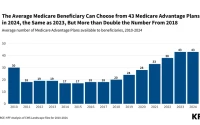Trump Just Handed Pfizer the Keys to the Kingdom, and All We Got Was This Lousy Website
So let me get this straight. The President of the United States gets on a stage, puts his arm around Pfizer CEO Albert Bourla, and announces a shiny new website. TrumpRx. Sounds revolutionary, right? A place where we, the little people, can finally buy our meds directly from the government at a discount.
They trotted out a few examples. Eucrisa for your dermatitis, Xeljanz for your arthritis. Stuff most people can't even pronounce, let alone afford. And they're promising discounts! Pfizer will sell some of its stuff for an average of 50% off. The Medicare director, Chris Klomp, even chirped that prices could be "up to 80% lower."
"Up to." That's the magic phrase, isn't it? It’s the same weasel-wording my internet provider uses when they sell me "up to" 100 Mbps and I spend my nights staring at a buffering wheel. It means nothing. It’s a marketing slogan masquerading as a solution.
Because let's be real for a second. Who is this website actually for? Craig Garthwaite, a health economist who actually knows what he’s talking about, basically said it won't have any large impact. Most people who need life-altering, expensive drugs have insurance. That's the only way you can get them. If you don't have insurance, a 50% discount on a drug that costs thousands a month is like getting 50% off a Lamborghini. Great, but you still can't afford the damn thing. This whole thing feels like a solution in search of a problem.
No, the website isn't the story. It's the distraction. It's the shiny object they're dangling in front of our faces while the real deal goes down in the back room.
Playing Hardball, or Just Getting Played?
The Price of "Certainty"
You want to know what this was really about? You just have to read the quote from the man himself, Albert Bourla. The Pfizer CEO stood up there and talked about the deal providing Pfizer with "the certainty and stability we need on two critical fronts, tariffs and pricing."
Let's translate that from corporate PR-speak into English.
"Certainty and stability" means the Trump administration, after months of threatening the entire pharmaceutical industry with 100% tariffs and "most favored nation" price controls, just folded. They backed off. In exchange for this website—this glorified coupon page—Pfizer gets a three-year grace period. Three years where they don't have to worry about the administration's biggest threats.
This is a bad deal. No, 'bad' doesn't cover it—this is a five-alarm dumpster fire of a deal for the American public.

For months, Trump was playing hardball. He signed an executive order. He sent letters to 17 drug company CEOs giving them a 60-day deadline to fall in line. He even launched a Section 232 investigation, the kind of thing you do when you think something is a threat to national security. The administration made medicine costs sound like a foreign invasion. And then, right at the deadline... they settled. For a website and a promise of a $70 billion investment that, let's be honest, a company the size of Pfizer was probably going to make anyway.
Pfizer didn't just win. They ran the table. Dr. Albert Bourla played the administration like a fiddle, and we're the ones paying for the concert. He turned a national security threat into a marketing opportunity. Its brilliant, in a completely sociopathic way.
More Companies, Same Old Shell Game
The Rest of the Vultures Circle
And don't think for a second the other drug companies aren't watching. They see the writing on the wall. The playbook is out: create a token "direct-to-consumer" program, get some good press, and get the government off your back.
Look at the pharmaceutical lobby, PhRMA. They immediately jumped on the bandwagon, announcing their own $500 billion investment plan and a new website, AmericasMedicines.com. Novartis and Boehringer Ingelheim are rolling out their own direct offerings too. It’s a coordinated campaign. It’s damage control. They're all trying to look like the good guys, offering us a 10% discount with one hand while keeping their iron grip on the system with the other.
This ain't about lowering prices in any meaningful way. It's about preserving the status quo. It’s about fending off any real, structural change—like the "most favored nation" policy Trump was screaming about just a few months ago. What happened to that? It seems to have been traded away for a few percentage points off on some migraine medication.
And what happens in three years when Pfizer's grace period is up and this website has been forgotten by everyone except a few thousand people? Well, that's a problem for the next guy, I guess...
Then again, maybe I'm the crazy one here. Maybe this is a genuine first step and I'm just too cynical to see it. Maybe the Pfizer CEO Albert Bourla really is a philanthropist at heart.
Yeah, and maybe my cable bill will one day be simple, transparent, and fair. I'm not holding my breath.
The House Always Wins
Give me a break. This was never about helping people. This was a shakedown, and Pfizer called the administration's bluff. They traded a few trinkets—a website, some Medicaid pricing they should have been offering anyway—for a golden ticket to operate without fear of tariffs or real price controls. It's a masterclass in lobbying and public relations. They get to look like heroes while gutting the only real threat to their pricing power. We got played. Again.
Reference article source:









